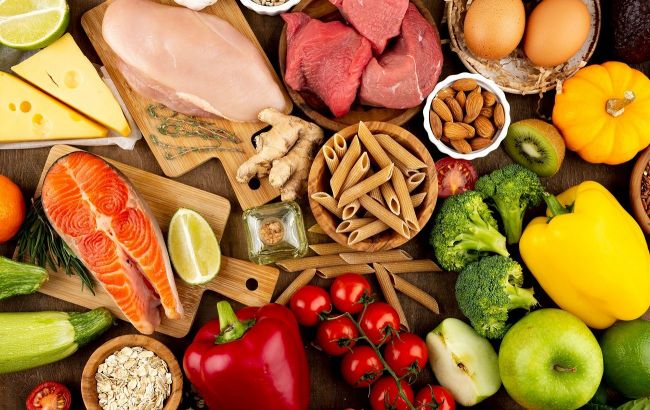Improve brain function through learning and nutrition
 Illustrative photo (Freepik)
Illustrative photo (Freepik)
Continuous learning offers not only career advantages but also forms the foundation for brain health and serves as a safeguard against age-related cognitive decline. Proper and balanced nutrition is crucial for optimal brain function as well, according to nutritionist Oleh Shvets.
Key guidelines
Identify your favorite foods
Create a list of your top 10 favorite dishes. Be honest with yourself. If one of these dishes is, for example, pizza, it doesn't necessarily have to be excluded from your diet. There are many ways to make pizza healthier and tastier: use a thin whole-grain crust, simple toppings like fresh mozzarella and basil, limit portion sizes, and so on. If your favorite dish is french fries, it might be time to limit its consumption and enjoy it no more than once every two to three weeks.
What to avoid
If you dislike something, such as cabbage, don't force yourself to eat it. Find healthy foods that you enjoy and don't compel yourself to eat what you don't like. Avoid fried foods, sweet desserts, and processed food products. If you can't completely exclude these foods, try to consume them as rarely as possible.
Create meal schedule
If you really can't eat in the morning - don't. However, focus on small changes in your schedule to avoid consuming most of your calories late at night. If it suits you, eat 2-3 times a day. If you like snacking, spread your calories over 4-5 smaller meals. Monitor your weight. Frequent snacking can lead to weight gain and hinder efforts to lose weight.
After determining your preferences and habits, it’s time to think about foods that benefit the brain, improve concentration, and minimize blood sugar spikes, which can harm attempts to learn new skills or languages.
Foods to add to your menu
Find ways to include the following foods in your diet:
Eggs. A simple way to get B vitamins, which improve cognitive abilities and memory.
Avocado. This fruit is not only delicious but also full of healthy fats that help you stay full longer and lower bad cholesterol levels.
Berries. Blueberries, raspberries, strawberries, and other berries contain powerful antioxidants that reduce inflammation in the body and brain.
Fish. One of the best natural sources of Omega-3 fatty acids, which are crucial for maintaining brain health. Choose salmon, cod, sardines, trout, etc.
Nuts. One of the best available sources of vitamin E, which improves memory, and healthy fats that provide satiety without being heavy.
Dark chocolate. To satisfy your sweet tooth and stay healthy, look for chocolate that contains at least 60-70% cocoa.
Beans. There are over 70 varieties of this protein and fiber source. Add beans to salads, stews, rice dishes, etc.
Spinach. The best plant-based source of vitamin K and iron, which are all essential for maintaining energy and normal body function.
Juice. If you enjoy fruit juice, opt for natural ones without added sugars. Limit the amount to 200 ml per day.
This material is for informational purposes only and should not be used for medical diagnosis or self-treatment. Our goal is to provide readers with accurate information about symptoms, causes, and methods of detecting diseases. RBС-Ukraine is not responsible for any diagnoses that readers may make based on materials from the resource. We do not recommend self-treatment and advise consulting a doctor in case of any health concerns.

